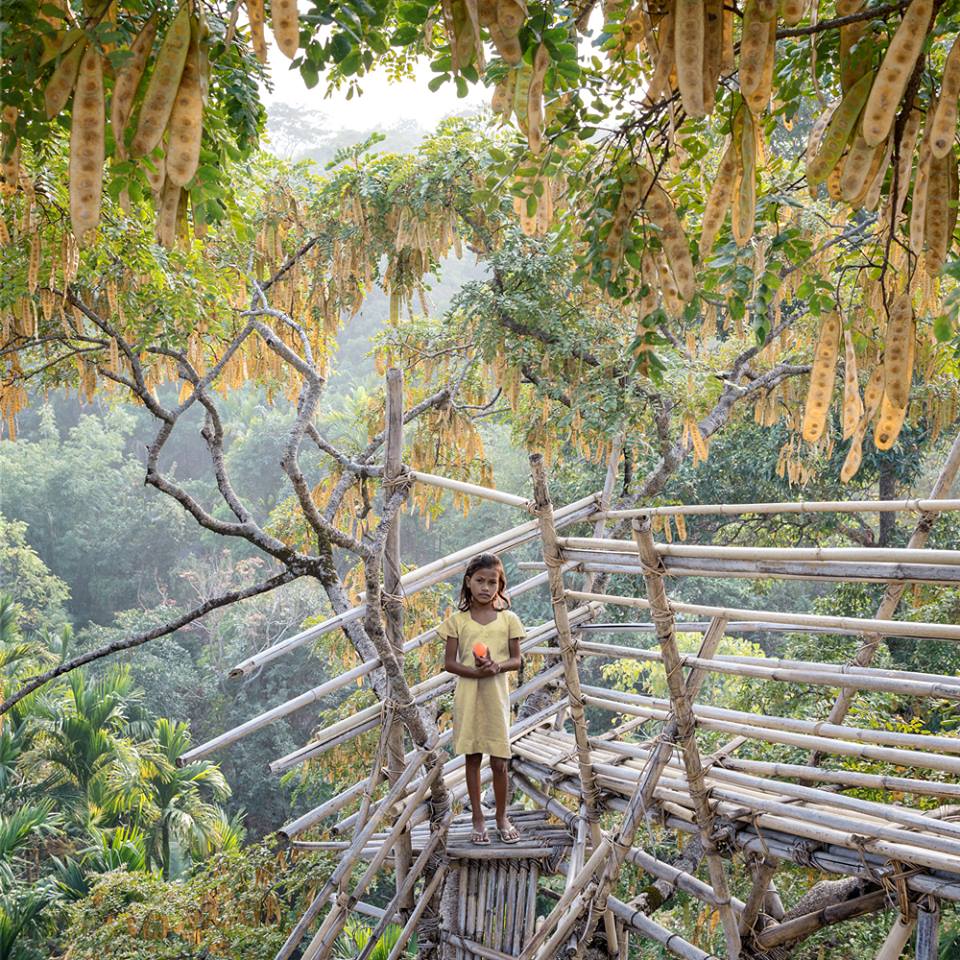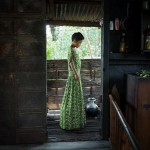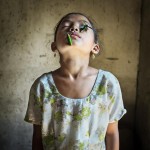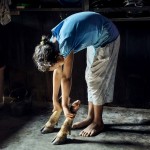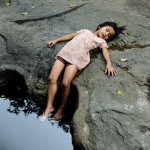A Kingdom of girls tucked away in an Indian village
Karolin Klüppel, a Berlin-based photographer, travelled to the Indian State of Meghalaya to capture one of the world’s rare matrilineal tribes through her photographic lens.
Mawlynnong, a small village tucked away in the Northeastern state of the Meghalaya, bordering Bangladesh, is popularly known as the ‘cleanest village in Asia’. Also touted as the ‘God’s own Garden’ for its mesmerizing scenic beauty, this village is home to the indigenous tribe Khasi.
“I was totally fascinated by this matrilineal tribe in India. Women and girls have a special standing in the Khasi culture. As a woman, you can feel another kind of respect there.” Karolin Klüppel, a Berlin-based photographer, stayed with local families in the village over a period of nine months to create her photo series ‘Mädchenland’ or ‘Kingdom of Girls’. Through her work, Klüppel, gives her viewers an insight into a culture where the women are considered special.
The series is a beautiful and refreshing insight into a country that has lately been making headlines across the world for crimes against women. Klüppel’s photographs capture young and confident girls that enjoy a lot of freedom and safety. The Khasi culture gives its women a lot of freedom and protects their rights. Children carry their mother’s surname and the youngest girl in the family is the heir to wealth and property. Upon marriage, her husband joins the heiress also known as Khaduh, in her marital home. Women that choose to divorce or remain single are not stigmatized in this society.
“I was very impressed by the self-assured appearance of the young girls in the village. I was surprised that they were so open and not at all shy.” Klüppel spent a lot of time with her protagonists and established close connections with the girls. “Some girls really loved to be photographed; it was like a game for them. They often visited me in my room and we spent a lot of time sitting together around the fire or going out for a swim in the river.”
Klüppel’s series captures the girls in their everyday lives, going about their chores, playing or posing for her. Art experte Gabriele Neußer draws out the striking resemblance of Klüppel’s images to motifs in European paintings. “The small child combing her hair in front of the mirror awakes memories of Velasquez “Venus at her Mirror” in the same pose. The girl diving under the surface of water reminds us of John Everet Millias’s ‘Ophelia’, whose literary template of a woman in a patriarchal society, who commits suicide, and was brought to life in Shakespeare’s Hamlet.”
Neußer believes that with these references, Klüppel considers motifs of Far Eastern reality through a culturally Western aesthetic viewpoint, displaying traditional Western patterns of perception and interpretation thereby questioning our acceptance of them.
Author: Roma Rajpal Weiß
Editor: Marjory Linady
WTO RECOMMENDS
Matrilineal Societies in the World
Matrilineality is a societal system in which a person’s descent is traced through their mother or maternal ancestors. In a matrilineal society property, such as land, is handed down from mother to daughter. Owing to this system they sometimes have a unique tradition that cannot be found in a patrilineal society. (From Februar 20, 2015)
Property passes on to daughters in the Minangkabau Society
If we look for news about women on the internet, we find a lot of stories about violence against women and girls. It is said that in some societies women literally do not have any value, for example in the case of the two Dalit girls in Uttar Pradesh, India, who were gang-raped and hanged by men from a higher caste. It is also said that their attitudes towards women is deeply rooted in their traditions. (From October 13, 2015)
Afghanistan: In The Midst Of War, A Women’s Rights Warrior
Born in the mid-50s in Mazar-i-Sharif, a cultural and religious site in Afghanistan with famous shrines that get thousands of visitors annually, Dr Habiba Sarabi’s childhood was similar to that of many girls in her country. She grew up in a lower middle class household where money was tight, and her father preferred her brothers. She had to work twice as hard to show that she was capable of doing as much as them, if not more. (From June 16, 2015)



